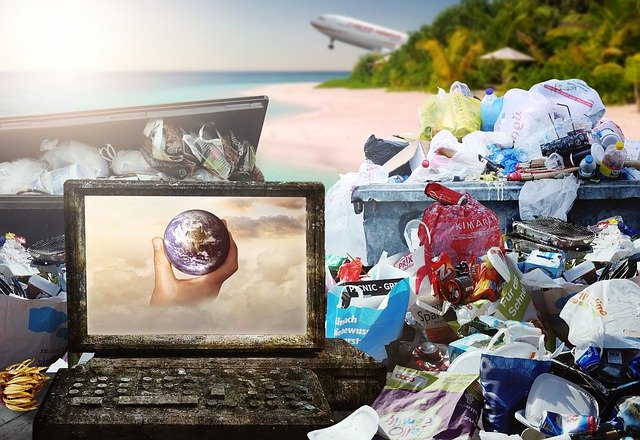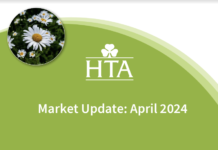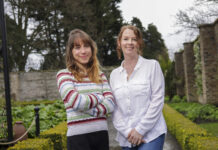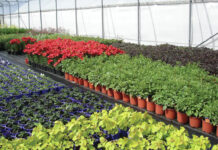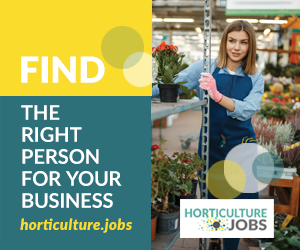Klara Lynch, Insight & Planning Specialist London, Bord Bia – The Irish Food Board
This FoodAlert article will introduce Bord Bia’s Consumer Lifestyle Trends and will look at what consumers are demanding in order to live more responsibly. It will also share examples of how the trend of Responsible Living is manifesting across the world and will conclude with the implications for Irish suppliers.
In September 2018, Bord Bia relaunched the Consumer Lifestyle Trends, with a focus on the five key trends that will influence the food and drink market over the coming years. The five trends are: Health & Wellbeing; Community & Identity; Engaging Experiences; Fuller Lives; Responsible Living.
Context and manifestations:
While all of these trends are seen in day-to-day life, one that has really been in the spotlight in recent years is ‘Responsible Living’. Although the impacts of global warming have been known for years, 2019 saw them come to a head with many nations declaring that the world is now facing a ‘climate and biodiversity emergency’ (Rankin, 2019). Shows like BBC’s Blue Planet showed viewers the different impacts that climate change is having on the world’s eco-system.
All of these issues coupled together have led to consumers demanding more from brands and businesses, requiring them to make changes to their practices that will: 1) showcase how they intend to reduce their impact/damage on the environment (Forbes, 2020), and 2) allow consumers to live better, more sustainable lives but in an easier, more convenient way (Bord Bia, 2018).
According to Stylus, one of the Global Food Mega Trends of 2020 is that food and drink brands are doing more to future proof the planet (2019a). This trend is manifesting itself in various ways through the industry – from looking at repurposing waste, to focusing more on the land itself and how it is being treated. Different businesses are taking different steps to ease consumers’ consciences (Stylus, 2019a).
This trend has seen the formation of some unlikely partnerships – with the likes of McDonald’s and Ford joining forces to transform waste from McDonald’s coffee-roasting process into material for auto parts (Stylus, 2019b). Another example of a partnership that is working on alleviating food waste is the beer brand Toast Ale, who brew beer using surplus fresh bread (Toast, 2020). By sourcing surplus bread from the sandwich industry, Toast Ale are using food that would otherwise go to waste, while also using less water and avoiding increased carbon emissions (Toast, 2020). William Grant & Sons are another well-known brand that are looking to upcycle food waste. By sourcing and using left-over banana skins from a flavouring manufacturer (which only uses the fruit itself), William Grant & Sons are repurposing the waste and producing a rum drink (Discarded Banana Peel Rum) (Stylus, 2020c).
Single-use plastics are another pain point for consumers, which has seen brands like Keep Cups and Chilly Bottles becoming more popular than ever. Different businesses and brands are also trying to reduce their single-use plastics and environmental impact, with events like Wimbledon ditching their plastic racket covers in an effort to be more sustainable (Siddique, 2019) and coffee chains like Costa and Insomnia encouraging consumers to bring in reusable cups, through discount schemes. Fashion brands are also starting to change their ways and practices, with brands like H&M really looking at how they work. Not only are they now sourcing recycled fabric from Swedish company Re:newcell, they have also partnered with RePack and offering customers discounts when they return their reusable packaging (Stylus, 2020a; Stylus, 2020d). By helping consumers to make more sustainable choices, brands are appealing to consumers’ values and ethical concerns.
Another business that is both helping consumers make better, more sustainable choices while also trying to limit their impact on the environment is Blue Bottle, a Californian specialist coffee chain. Blue Bottle plans to remove all single-use plastics from its cafes, while also making their US locations zero waste. Blue Bottle’s plan to achieve this includes: 1) removing single-use cups, meaning consumers need to bring their own mug or reusable cup or else they can place a deposit on a reusable Blue Bottle branded mug; 2) serving any grab-and-go food items in reusable containers to remove single-use plastics from items bought in store (Stylus, 2020b).
Implications for Irish suppliers:
Overall, there is a variety of ways brands and businesses are changing their ways of working, in order to reduce the impact that they have on the environment, while also impressing or attracting consumers. Any Irish supplier that can start to meet or match consumers’ values in an honest, transparent and true way, particularly around ethical and sustainable credentials, are likely to experience increased consumer positivity.
Sources:
Bord Bia. (2018). Consumer Lifestyle Trends: Responsible Living. Accessed Feb. 28, 2020, from: https://www.bordbiaconsumerlifestyletrends.ie/trends/responsible-living/
Forbes. (2020). Packaging The Way To A Sustainable Future. Accessed Feb. 28, 2020, from: https://www.forbes.com/sites/businessreporter/2020/02/18/packaging-the-way-to-a-sustainable-future/#2adfdd3e2972
Rankin. J. (2019). ‘Our house is on fire’: EU parliament declares climate emergency. Accessed Feb. 27, 2020, from: https://www.theguardian.com/world/2019/nov/28/eu-parliament-declares-climate-emergency.
Siddique. H. (2019). Wimbledon ditches plastic racket covers in sustainability drive. Accessed March 2, 2020, from: https://www.theguardian.com/sport/2019/jun/28/wimbledon-ditches-plastic-racket-covers-in-sustainability-drive
Stylus. (2019a). Global Food Megatrends 2020. Accessed Feb. 28, 2020, from: https://www.stylus.com/
Stylus. (2019b). Ford & McDonald’s Transform Coffee Waste into Car Parts. Accessed Feb. 28, 2020, from: https://www.stylus.com/
Stylus. (2020a). New Rules, New Roles. Accessed March 2, 2020, from https://www.stylus.com/
Stylus. (2020b). Blue Bottle to Go Zero Waste by the End of 2020. Accessed March 2, 2020, from https://www.stylus.com/
Stylus. (2020c). William Grant’s Rum Uses Banana Skins. Accessed March 2, 2020, from https://www.stylus.com/
Stylus. (2020d). Fashion: Sustainability Round-Up: February 2020. Accessed March 2, 2020, from https://www.stylus.com/
Toast. (2020). Toast Ale Impact Report 2019. Accessed March 2, 2020, from: https://www.toastale.com/wp-content/uploads/Toast-Ale-Impact-Report-2019.pdf



